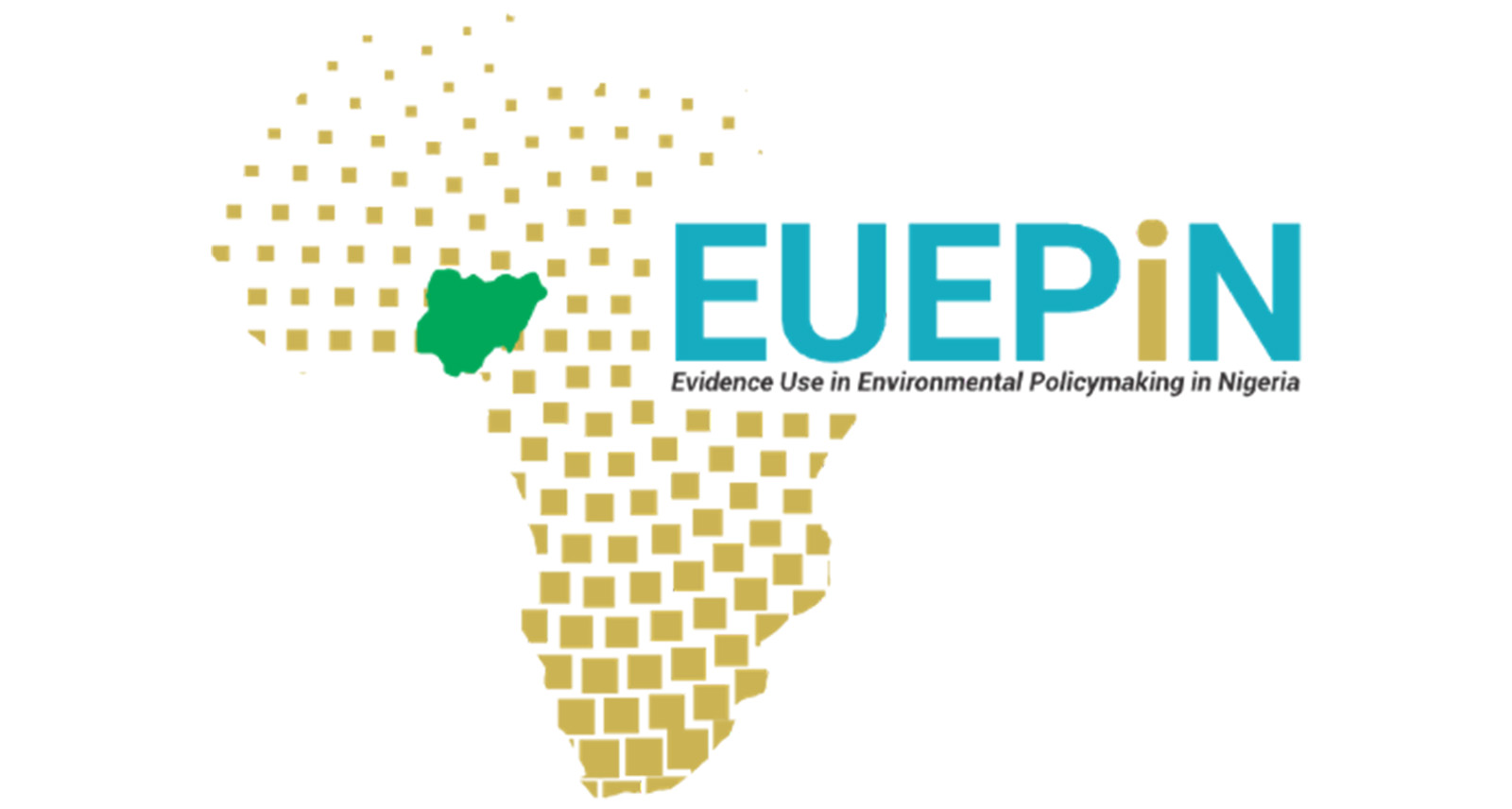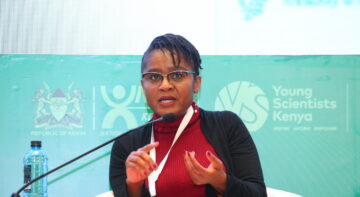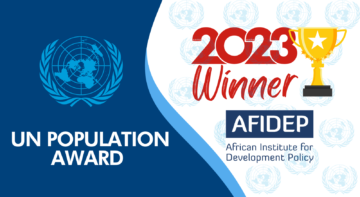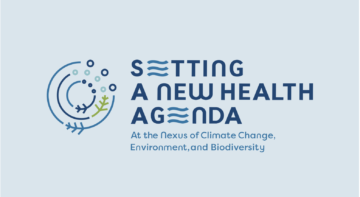Blogs

The promotion of evidence-informed decision-making in environmental management as is applicable to the health/medical sciences is necessary and urgent. This is particularly due to increasing unsustainable environmental practices by man with attendant effects like climate change, plastic pollution, antimicrobial resistance, among others. To address this, the Evidence Use in Environmental Policymaking in Nigeria (EUEPiN) Project was conceived and commenced operations in January 2020 following the receipt of a competitively awarded seed fund by the African institute for Development Policy (AFIDEP) in collaboration with the African Academy of Sciences (The AAS) under the Evidence Leaders Africa (ELA) Project.
The EUEPiN Project aims to establish a formal forum for the interaction of evidence producers (researchers) and evidence users (policymakers) as well as provide a platform for capacity building and engagement for evidence-informed decision making (EIDM) in environmental management in Nigeria.
Our Interventions
From January 2020 to date, the EUEPIN project in partnership with three (3) environmental policymaking institutions in Nigeria (Lagos State Ministry of the Environment and Water Resources (LSMOEWR), Federal Ministry of Environment (FMEnv – Lagos Zonal Office)), and Federal Ministry of Science, Technology and Innovation (FMSTI) and its Advisors has achieved several feats. Four (4) capacity building workshops on EIDM in environmental management and knowledge translation have been facilitated by various experts from within Nigeria, Africa and Europe through 12 modules. Over 100 middle to top career level participants in the environmental evidence ecosystem (evidence producers-evidence brokers-evidence users) have been trained.
We have built a retinue of capacity building resources (under projects – workshop slides, manuals, videos, photos, and publications) which are hosted on the EUEPiN website and social media (Twitter and YouTube) with free accessibility by the global community. Further, we developed the Environmental Evidence Portal for Nigeria (EEPoN), which is a one-stop’ shop for environmental-related information (policies, guidelines, standards, white papers, technical reports, peer-reviewed publications and data) relevant to Nigeria.
We also facilitated the set up of three (3) Technical Work Groups (TWGs) made up of environmental researchers, practitioners and policymakers for each cohort of workshop participants. The goal of the TWGs is to promote sound environmental policies and environmental sustainability through impactful EIDM initiatives. Similarly, we have created and periodically update the EUEPiN EIDM Community of Practice made up of successfully trained participants with their bios hosted on the EUEPiN website, periodic engagements and links to resources. Also, we facilitated a four (4) weeks secondment of three (3) competitively selected awardees (researchers and policymaker) who had been trained within the project to apply the knowledge and skills learnt.
For more sustained engagement, the project set up Knowledge Translation Units (KTUs – three (3)) at its partner policymaking institutions to promote the mainstreaming of the best available scientific evidence/research in concert with contextual factors to inform environmental policy and practice by the institutions. In addition, the Environmental Evidence Synthesis and Knowledge Translation Research Group (EESKT) affiliated with the TETFund Centre of Excellence on Biodiversity Conservation and Ecosystem Management (TCEBCEM), University of Lagos was established. The EESKT Research Group aims to conduct studies, develop capacity, facilitate collaborations between evidence producers and users and institutionalize EIDM by policymakers and industries for environmental management and sustainability.
Factors that facilitated our success
The factors that enabled the success of the EUEPiN project were the several trainings on EIDM undertaken by the Project’s Principal Investigator (Dr Sogbanmu), the high interest for EIDM knowledge and skills by the various stakeholders, cooperation from the Project’s partner policymaking institutions, periodic meetings with project advisors, their presence and support at project events, support and cooperation from the management and leadership of the project host institution (the University of Lagos), networks and collaborations across academies, professional societies which were leveraged, social media visibility and openly accessible resources which were curated within the project, teamwork and cooperation by the EESKT Research Group and KTU members at the partner institutions, technical support and cooperation from the teams at AFIDEP and the AAS.
The challenges that we overcame
The factors that nearly undermined the success of the project include; the Coronavirus Pandemic 2019 (COVID-19) global lockdown during at the inception phase of the project in early 2020. However, it became a blessing in disguise in some ways as we were able to apply mitigation measures which enabled us to facilitate more workshops albeit virtually instead of physically which would have been more expensive. The multidisciplinary and cross-sectoral nature of the initiatives required skills that were somewhat garnered as the initiatives were developed. The delays in getting government ministries, departments and agencies on board and bureaucracies with some of the initiatives. Limited funds as we were not able to get all stakeholders in the environmental evidence ecosystem involved per time for the workshops (we could only effectively train 40-50 participants per time despite the hundreds of applicants). Lack of dedicated project staff to support implementation which was linked to limited fund as avenues and opportunities for initiatives of this nature are limited.
The lessons we learnt
The lessons learnt from the experiences in implementing the EUEPiN project are; the realization that there is a high and often urgent demand for evidence by policymakers, high interest and gap in capacity building for EIDM especially in the environmental sciences/management, the EUEPiN secondments were an eye-opener to the secondees and project team on the short to long term productive outcomes of collaborations between the ‘town and gown’, the major barrier to EIDM is the ‘huge’ communication gap between researchers (evidence producers) and policymakers (evidence users), lack of partnership/collaboration competencies is a major limitation to environmental evidence production and utilisation for decision making, contextualised capacity building addressing environmental evidence synthesis, translation and utilisation in decision/policy making must be a continual initiative, the benefits of open access digital platforms particularly in this Fourth industrial revolution as a means of achieving environmental eductation for all and sustainability, awareness and need to target dissemination to various social strata, the use of visualization tools to facilitate interest and utilization particularly by evidence users as well as institutionalized funding mechanisms to promote EIDM in environmental management.
—————————————-
Temitope O. Sogbanmu, Ph.D.
Ecotoxicology and Conservation Unit, Department of Zoology, Faculty of Science, University of Lagos, Akoka, Lagos, Nigeria
Evidence Use in Environmental Policymaking in Nigeria (EUEPiN) Project, Research and Innovation Office, University of Lagos, Akoka, Lagos, Nigeria
Environmental Evidence Synthesis and Knowledge Translation Research Group, TETFund Centre of Excellence on Biodiversity Conservation and Ecosystem Management (EESKT-TECEBCEM), University of Lagos, Akoka, Lagos, Nigeria
Correspondence: tsogbanmu@unilag.edu.ng; euepin@unilag.edu.ng
Websites: https://euepin.unilag.edu.ng/; https://eepon.unilag.edu.ng/
Related Posts





